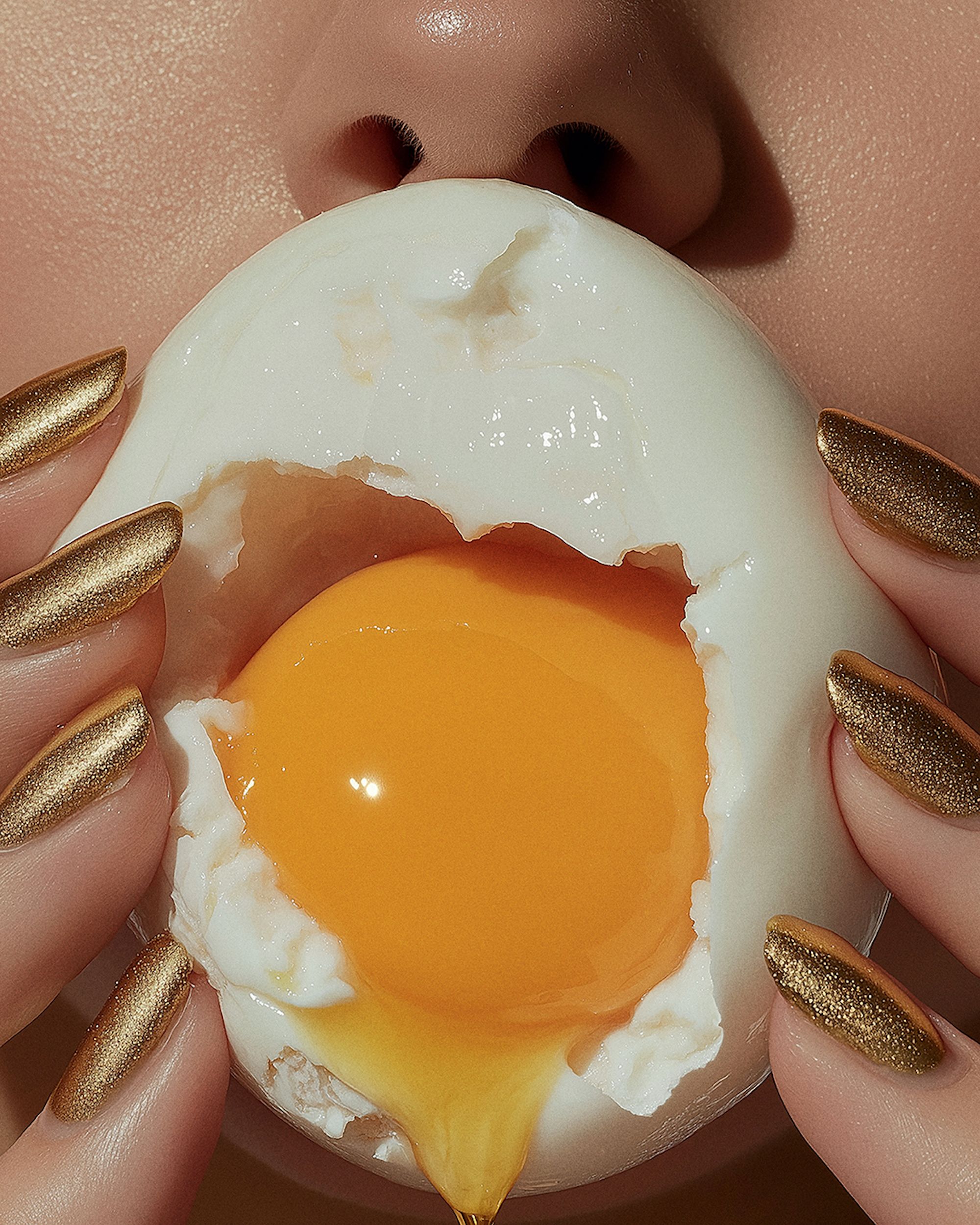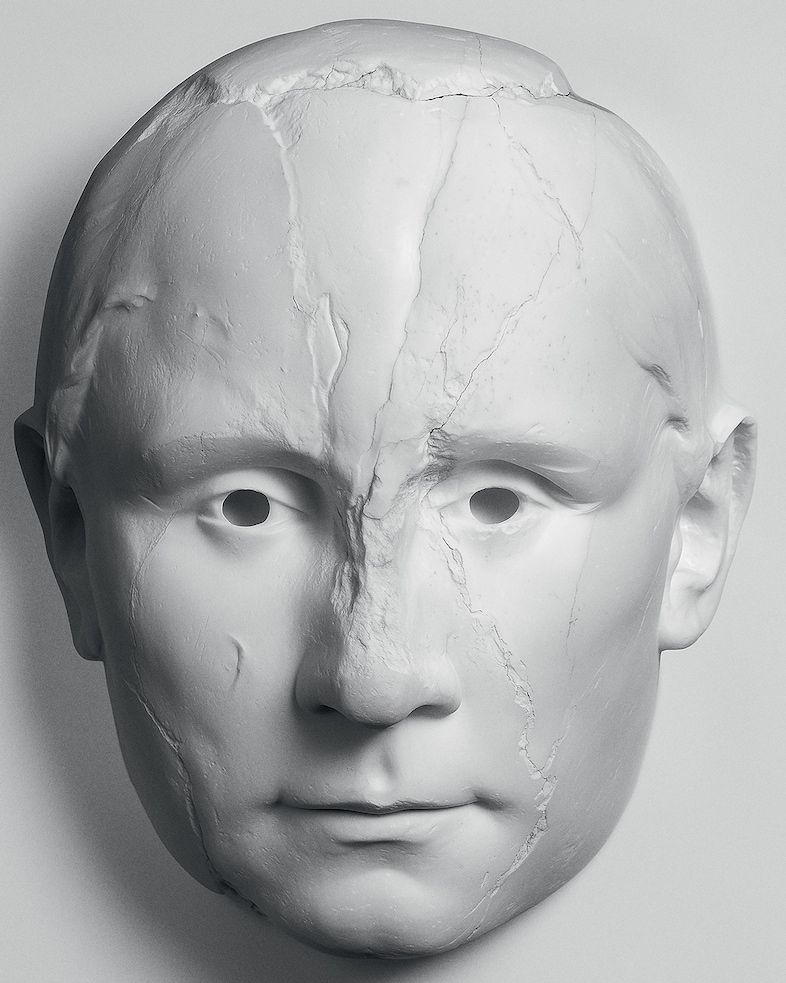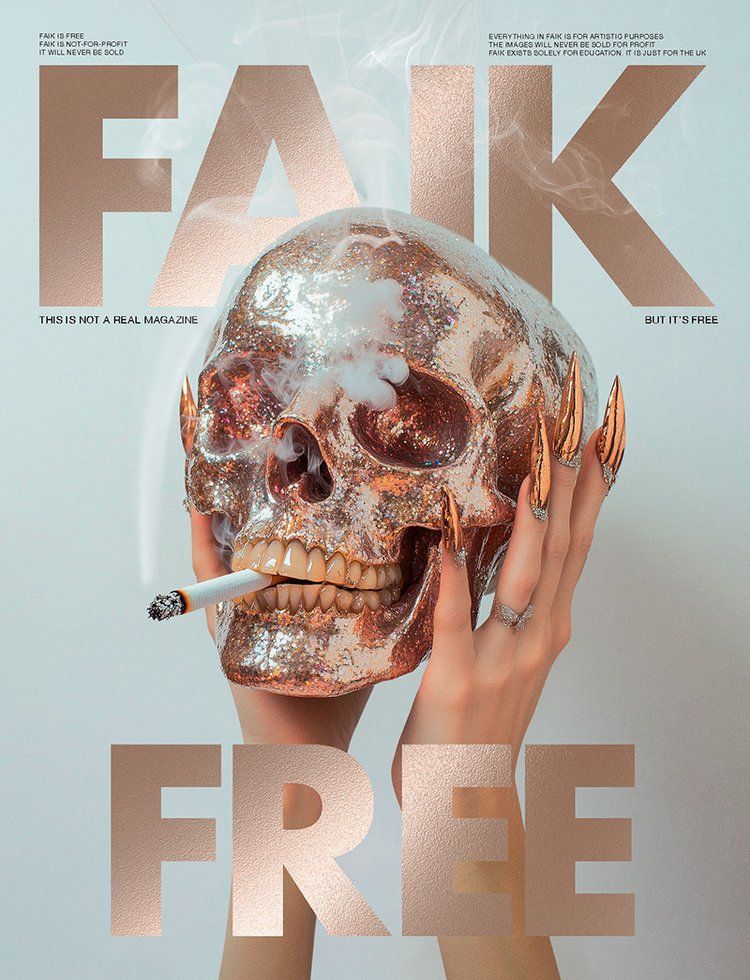
The renowned photographer, publisher and provocateur Rankin has been capturing the cutting edge of pop culture in the eye of his lens since the early 90s, when he co-founded the style magazine Dazed and Confused, a title that has since become synonymous with controversy and insouciant cool. Over the ensuing decades he shot portraiture of practically every cultural figure you can imagine, from radical outsiders, such as Quentin Crisp, to establishment figures nonpareil, such as the late-Queen Elizabeth II, while also helming a creative agency and producing the magazine HUNGER, which has just celebrated its 15th birthday. Most recently, he has turned his attention to the fractious issue of AI with a free one-off slab of a magazine that was entirely created “in collaboration” with machine learning models such as MidJourney and Chat GPT-4, providing an unsettling glimpse of a future in which the creative process has been reduced to series of prompts. While imbued with a wry sense of humour, the pages upon pages of AI-generated images and interviews within FAIK pose uncomfortable questions about the death of the author and the increasingly accelerated ability of AI to remix 2,000 years of cultural history in a matter of seconds. Here, the acclaimed image-maker talks to House Collective about the speed with which this technology is going to transform reality, and tells us how his love-hate relationship with AI has radically altered his perception.
What made you want to create a magazine entirely generated by AI?
When I started working with generative models, I was really anti-AI, but by the time I had finished FAIK, my feelings had changed, because what I realised was that no one else could have created the magazine apart from me, because of the way that I crafted it, and the way that I put it together. It was a really useful experiment, because I learned a whole new skillset. It was a completely different process – and it taught me so much about how I mould things in a certain way, and how my taste is so important in all of these decisions. It actually makes you push yourself creatively, if you embrace it in that way, and the inherent idea in AI that there's nothing at all holding you back, and that you are kind of limitless, feels a bit like being on a drug.

Do you find the process quite addictive? Are you ambivalent about the dangers of artificially generated imagery?
Yeah, I find myself using it and almost getting lost in the memory of where I have put things together on the journey. You can just create so fast. It kind of makes you have a God complex, because you just wave your magic wand and something appears. I’m not ambivalent about it, though. I really understand why people don't like it and don't want to talk about it, and why people are fearful and angry, and frustrated. And I believe that anger has not really kicked in yet. It's going to really kick in when people start losing their jobs. No one knows where we’re going with this technology right now. There is no north, south, east or west in terms of both a thought compass, and moral compass. It is dystopian, but it’s also exciting. In terms of creativity you become the ultimate curator, and once what you have prompted has been executed, it’s like looking at work made by ghosts of ghosts, because none of it is real.

I like the idea that it feeds back ideas, and that it is sparring with your creativity …
It is one hundred per cent sparring with my creativity, and also with the absolute definitive hate I have for it at the same time. But then the truth is that the best relationships creatively are the love-hate relationships, because they're the ones that really challenge you. The relationships that are like, ‘I hate you for what you do, and make me think and feel, but it inspires me too …’. Do I love you? Do I hate you? Do I love you? Do I hate you? It's a really weird feeling. I'm excited, but I'm also more scared of this technology than death, because this is literally going to be the obliteration of the way that we live our lives. It's going to completely change everything, and it's going to happen fast. I'm telling you, it can do everything you ask it to do within rational reason. The minute you expand your mind onto that, it is like a fog lifts and you go, oh, this is event horizon stuff.

What about this notion that AI hallucinates and suggests a fake version of reality?
The term hallucinating gives it an aura of mystery. What it is doing is making stuff up to please you, and to fill in the gaps, because it wants to serve you and doesn't want to not deliver. It's quite weird, because it's like a pizza delivery boy that hasn't got the right ingredients but is still trying to sell you the pizza, going, this is a pepperoni, when it's clearly a margarita. One good thing is that since I have been using these learning models, I’m not using social media at all. I'm just going, what can I create? What can I generate? As opposed to what can I consume. And it’s a pretty big thought that we are going to move from a consumption society to a generative thinking and creative society. I don't even know what that means for the future, but it is going to happen.
You can find out more about FAIK and other projects by Rankin here.